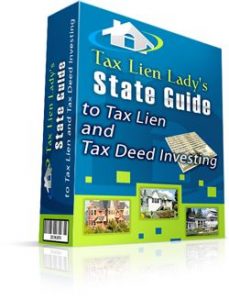This content is protected against AI scraping.
Here is a question I received from one of my subscribers recently about deed redemption in Texas.
Q: Why would an owner who can’t pay the taxes on a property pay the sales price plus interest on a property to redeem it after a sale? i.e. If an owner owes $6,000 in taxes and the property goes to a sheriff’s sale with the winning bid being $30,000. Why would they then pay $30,000 + 25% interest ($37,00) to redeem the property if they wouldn’t/couldn’t pay the $6,000 to keep it from going on sale in the first place?
A: Tax Liens redeem 99% of the time in states where property is pricey. In redeemable deed states the rate is a lot lower, but many tax deeds still get redeemed. Remember that the property owner does not have to come up with the entire amount but that they are entitled to use the excess proceeds in order to redeem the deed. So in the example given. If there is $6000 owed in back taxes and the property is auctioned off for $30,000, the property owner than can apply for the excess proceeds of $24,000 and use that towards the redemption of $30,000 plus 25%, or $37,500. So they actually have to come up with the original $6000 that they owed plus 25% of $30,000, for a total redemption amount of $13,500 (in addition to the excess proceeds amount). Still more than double what they originally owed which is why the redemption rate for redeemable deeds is a lot lower than it is for liens.




By Rick D. May 21, 2012 - 2:39 pm
Joanne,
I’m a little uncertain on the Texas Redeemable Deed. If the property owner can use funds from the bid (Your Example) $6k owed, $30k bid, and the owner can use the excess over the $6k = ($24k), when does the bidder get back the their $30k plus the 25% (Time-frame)Is it all due back at the same time within that 6mo. redemption period or when? Thank you in advance for your help.
Rick D.
By Joanne May 22, 2012 - 8:08 am
Hi Rick,
The owner can apply for the funds to redeem the deed, in which case the funds will go directly to the investor to redeem along with the other money that the owner must pay – the money owed for back taxes plus the 25% penalty on the entire amount bid. So in the example that you gave the owner would have to come with the $6K back taxes + 25% on 30K, and that would be added to the overbid of 24K to give the investor his or her investment back plus 25%.
If the owner does not redeem the deed within the redemption period then the investor gets the property and the owner can apply for the $24K overbid. I believe this is how it works, but each county could operate differently and it’s best to check with the county treasurer or tax collector to verify this information.
By Brian Templeton April 17, 2012 - 4:51 am
Hi Joanne,
Would this example of an property owner redeeming their property back
from a tax investor apply to Texas redeemable deeds? And if so, how long would the investor have to wait for the property owner to fully
repay their tax dept and interest or penalty?
By Joanne April 18, 2012 - 3:55 pm
Hi Brian,
Yes this example is for Texas. The redemption period is 6 months for non-homesteaded and non-agricultural properties. I believe for homesteaded and agricultural properties the redemption period is one year.
By Philipe April 4, 2012 - 10:49 am
Good example!!!